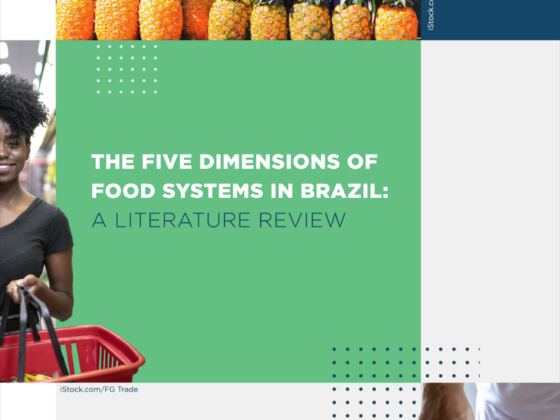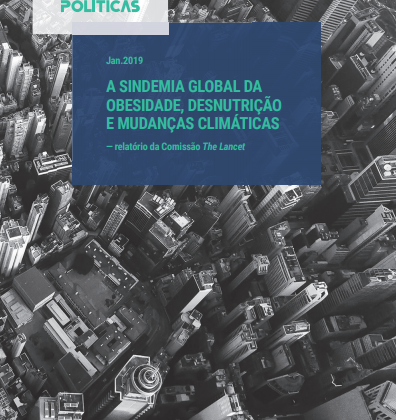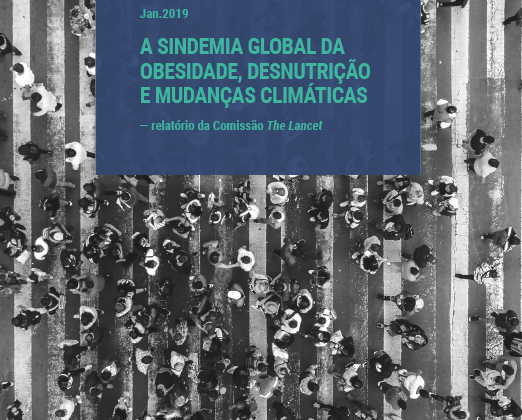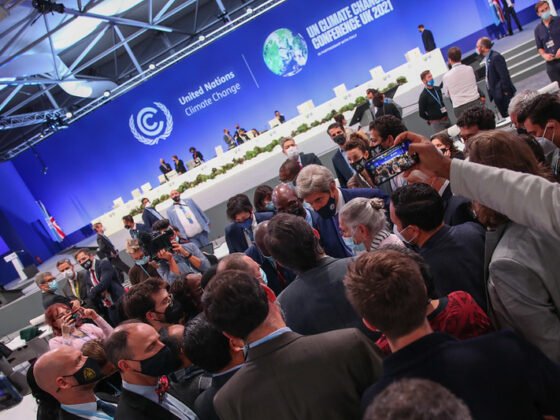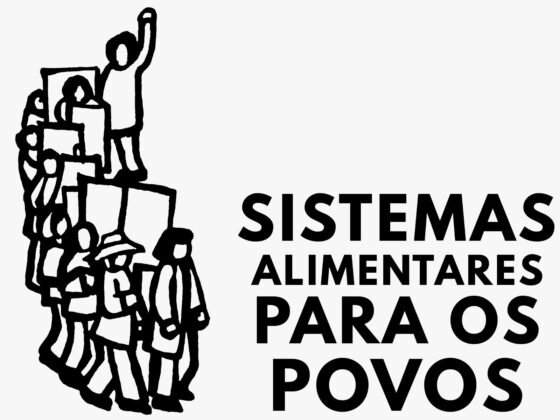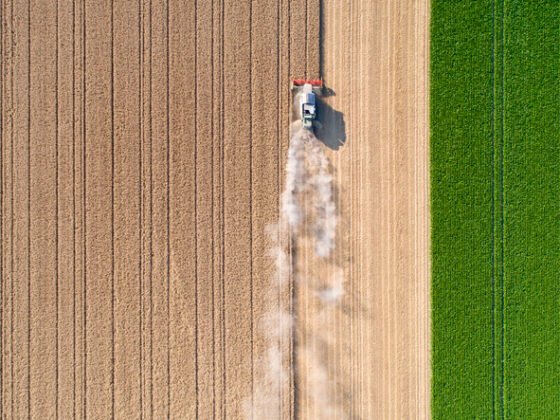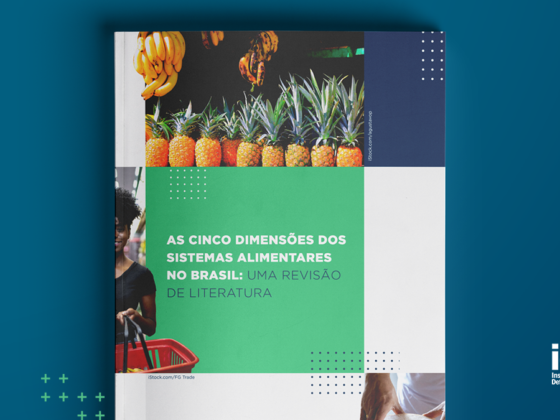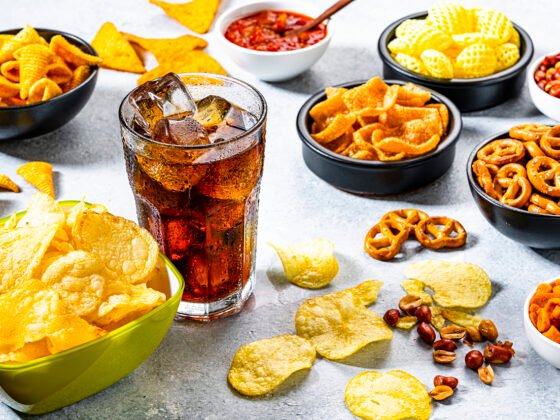Food Systems
Solutions to fight hunger, obesity and climate change
Food Systems is everything that relates to the way of producing, distributing, offering and consuming food. Building healthy and sustainable Food Systems means rethinking these models through the formulation of public policies that prioritize human rights over corporate interests.
What we defend
An urgent transition to healthy and sustainable Food Systems in Latin America that promotenpeople’s health and the environment protection.
What are the problems with current food system?
- Agriculture is the sector that most impacts and is impacted by climate change
- Conventional food production is based on the intensive use of pesticides,
deforestation and monoculture, which harm people’s health and the planet - Inadequate public policies encourage the consumption of ultra-processed products
and hinder access to healthy foods, causing obesity and other diseases - Industry interference in the formulation of public policies and setbacks to
fundamental rights - Although agribusiness continues to beat production records, more than 690 million
people face food insecurity in the world – only in Brazil is 116 million - Current Food Systems collaborate on the advance of the global syndemic, which is
characterized by the relationship of global crises of hunger, obesity and climate
change
Hunger, obesity and climate change
We live today in a global syndemic caused by high rates of obesity, malnutrition and climate
change. These are the biggest current challenges for society, the environment and the planet
– and the solution involves a transition in Food Systems.
116 million in food insecurity
While Brazil was world second leader in the export of agricultural commodities in 2020, at the end of the same year the country also registered more than 116 million people in food insecurity, who have partial or no access to food. Of this total, 19 million Brazilians are starving.
26.8% of the adult population suffers from obesity
It does not mean that they are well-nourished people. These are antagonistic situations: lack of access to food and excessive consumption of ultra-processed products. We live at the junction of epidemics of obesity, malnutrition and climate change, and they interrelate and feedback with themselves.
20% of global greenhouse gas emissions are from agriculture
A FAO report revealed in 2016 that, in the world, agriculture and land use contributed to at least 20% of GHG emissions, mainly from the conversion of forest to pasture and agriculture.
44% of total emissions in Brazil come from agriculture
In 2019, according to a report by the Climate Observatory, land use changes for agriculture in Brazil, with emphasis on deforestation in the Amazon and the Cerrado to open new productive areas, amounted to 44% of total domestic GHG emissions. Among all sectors, such as industry, energy and commerce, this represents the largest share of contribution to climate change.
80% of Brazilian emissions, adding agriculture and livestock
If we combine the sectors of agriculture and livestock, this marriage corresponded, between 1990 and 2018, to an average of 80% of total emissions in Brazil.
18% drop in world GDP
Economically speaking, the consecutive records of crop and production of Brazilian agribusiness, which in 2020 represented 26% of the Brazilian GDP, should be strongly impacted by climate change. On a global scale, estimates of future economic losses caused by climate change are up to 18% of world GDP, according to a survey by the Swiss Re Institute.
Clarifying arguments used by industry
The narrative created by corporations presents companies as a solution to the problems of obesity, hunger and climate change. However, it is precisely these companies that collaborate to maintain or aggravate these scenarios, producing unsustainably and promoting unhealthy foods
In general, corporations try to privatize what would be a public solution for global Food Systems, designing production and consumption models in a logic that undermines social rights, the health of the population and the planet.
Proper food labeling is an old flag that Idec raises to force companies to be transparent in the information about food ingredients and formulas, especially in ultra-processed products. However, companies are fighting desperately against this initiative. Is your food really healthy?
You can’t trust our food to corporations alone, as they deliberately influence people to consume their products, even if they aren’t healthy. Food education is essential to allow consumers to make healthier choices. People need to know what they are consuming free of the misinformation promoted by the ultra-processed industry.
No, it’s not. It’s pesticide. And pesticide is poison. The harm to health and the environment caused by these substances has already been proven and we urgently need to change the law.
Large food companies, in particular, promote misleading and abusive food advertising – and often to children. Able to influence our habits and behavior, illegal advertising impacts our health and must be controlled.
In large retail chains, the prices of fresh food can be lower than in local farmers’ fairs, precisely because of the conventional production scale, based on the intensive use of pesticides, deforestation and monoculture. Inadequate public policies favor this type of production and marketing. It is worth remembering that sustainable production models, such as agroecology, are demonstrably feasible on a large scale. In the market, in schools and wherever you go, finding more food options at affordable prices is essential to guarantee this right.
Publications
Positions
News
Initiatives
Regulation
Review of Nutricional Food Labeling
After a six-year struggle and more than 100,000 signatures on our petition, new rules for reporting harmful ingredients to health on food packaging were approved by Anvisa last year.
Regulation
Banning Trans Fat
After a long regulatory process, Anvisa approved last year the standard that defines the requirements for the use of industrial trans fats in food and its ban.
Data mapping
Map of Organic Fairs
Our tool for consumers to find organic and agro-ecological food, facilitating access for those looking and helping those who sell. So far, more than a thousand initiatives have been registered across the country.
Monitoring
Food Advertising Observatory
Idec’s initiative to identify and report misleading and children’s food advertising, protecting consumers from illegal marketing strategies. More recently, we denounced Nesfit products for highlighting honey on packaging without having this ingredient in the composition.
Research
There is Poison In This Package
Our study detected the presence of pesticides in ultra-processed products, further reinforcing the problems in the consumption of this type of food and demanding measures from the authorities.
Campaign
Promotion of Healthy and Adequate Food
One of our main missions is to inform and educate the population, which is why we have enlightening publications on sugar, trans fat, sodium, pesticides, breastfeeding and various topics related to food consumption.
